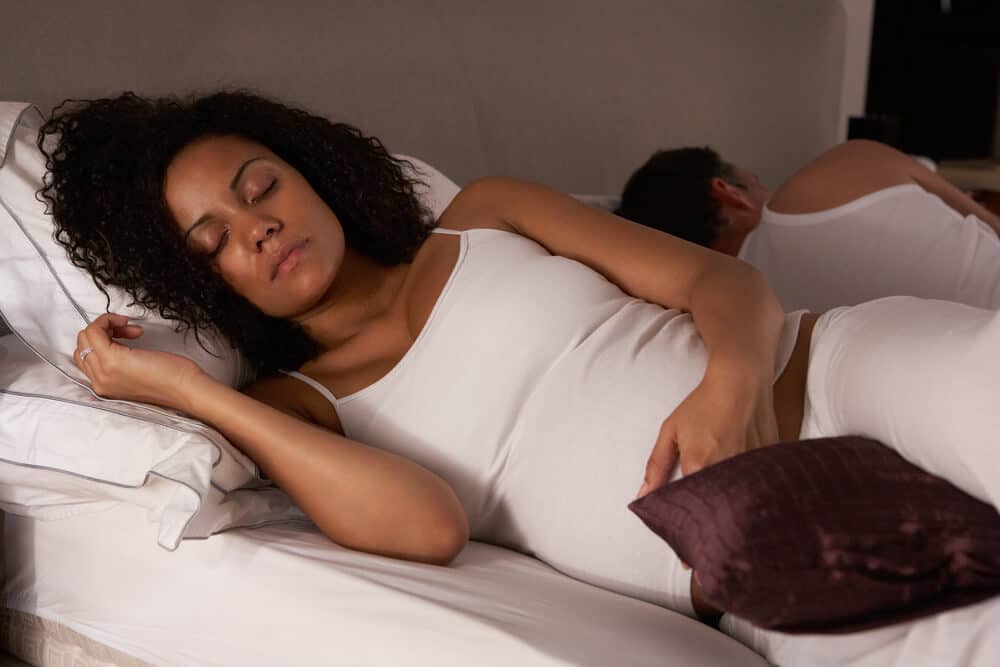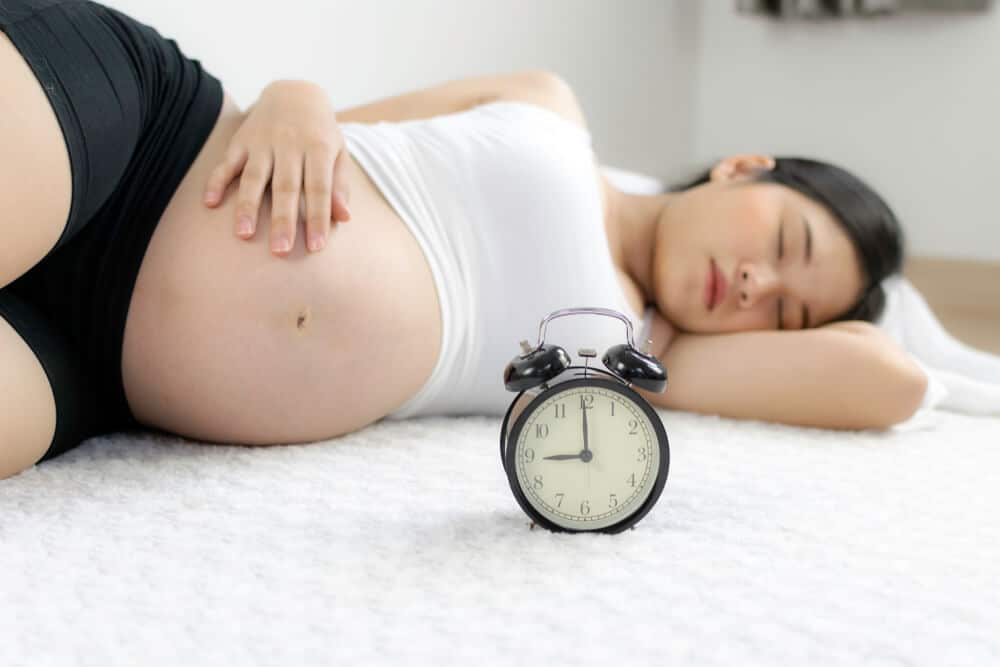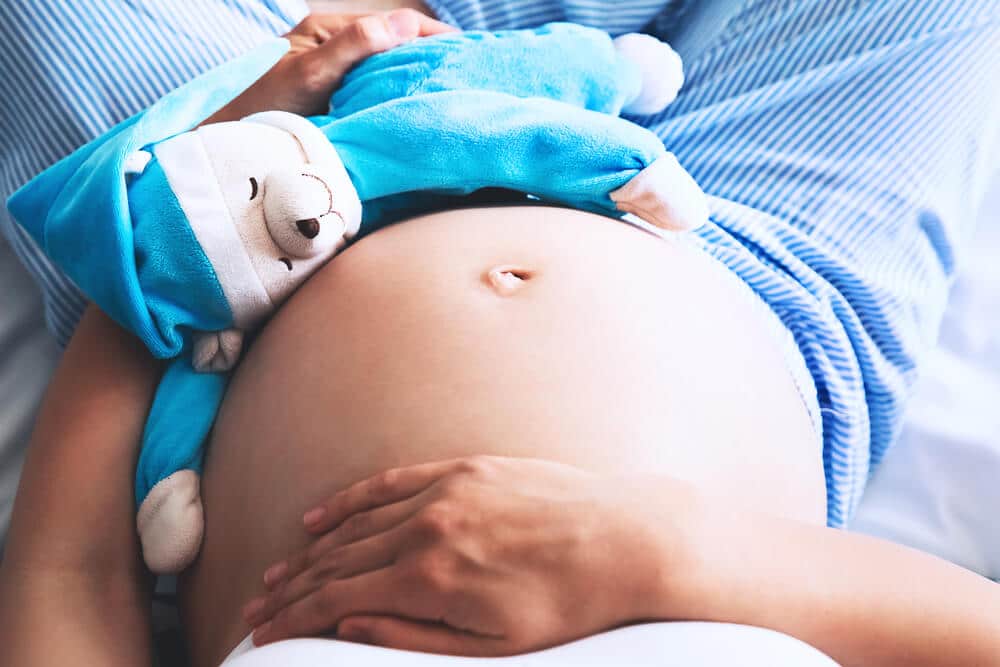Medical Disclaimer
This article is for reference purposes only. It should not replace the advice of a licensed professional. Do not use this article to diagnose, treat, cure, or prevent any disease or condition. Any and all health concerns should be directed to a doctor or other healthcare professional.
It’s no secret that new parents experience a significant drop in both total sleep time and quality once they welcome home their baby. However, those who are pregnant often get an unfortunate head start in this parental sleep-deprivation game. That’s right: sleep is yet another aspect of health that pregnancy impacts. In fact, according to one National Sleep Foundation study, 78% of those polled said they had more sleep-related problems while pregnant than at any other time in their lives!
Being pregnant is already stressful enough; that’s why knowing more about the connection between sleep and pregnancy—as well as some tips to get some rest—can make this period just a little bit easier to manage.
How does pregnancy affect sleep?

The first and third trimesters are more likely to bring about a change in sleeping habits and energy levels.[1] Why, though? The ways that pregnancy can affect someone’s sleep include:
Fluctuating Hormones
For starters, pregnancy—especially in the earlier stages—means lots of fluctuating hormones. One such hormone that increases during pregnancy is progesterone. Now, this hormone often makes pregnant individuals tired during the day… yet often disrupts sleep during the night.[2]
Cortisol, the “stress hormone,” is another chemical that increases during pregnancy. Importantly, cortisol helps regulate the sleep-wake cycle, and those who show elevated levels of cortisol tend to report more problems sleeping than those with regular cortisol levels.[3,4] So, it’s no wonder that pregnant folks experience disrupted sleep when their cortisol levels rise.
Faster Metabolism
The body kicks into overdrive during this time, which translates in part to a faster metabolism. Combined with increased levels of progesterone in the first trimester, this boost in metabolism can increase fatigue.[5]
Increased Stress
No one is denying that being pregnant can be stressful. From planning the delivery to picking out a new name to wondering about the fetus’s health, there are plenty of reasons why anxiety can develop and/or worsen during this time. Unfortunately, stress makes it incredibly hard to get a good night’s sleep—which can mean fewer Z’s for pregnant folks.[6,7]
Worsening Previous Conditions
Those who have pre-existing conditions may notice that these problems worsen during their pregnancy. When these conditions can be sleep-disrupting, like asthma, it can be just one more obstacle that stands in between an exhausted parent and rest.[8]
Other Pregnancy Symptoms
Heartburn, frequent bathroom breaks, overall body discomfort, restless leg syndrome, and more are all common to experience during pregnancy, and they can make falling (and staying) asleep that much harder.[9,10,11]
What position should you sleep in during pregnancy?

To combat sleep-related woes, pregnant folk should switch up their sleeping position. Specifically, there’s a preferred sleeping position for pregnancy: on the left side. Left-side sleeping is particularly great for pregnancy because it helps increase precious blood flow to both parent and fetus alike; it also relieves pressure on the liver.
For those who rest on their backs or stomachs, it can be hard to make this switch. There are a few tricks for readjusting sleeping positions, though. Namely, those who have difficulties resting on their sides may try either placing a pillow between the legs or investing in a quality pregnancy pillow.[12]
Now, most experts do not recommend back sleeping during pregnancy, as it heightens the risk of issues like back pain, low blood pressure, and decreased blood flow to the parent’s heart and fetus.[13]
How many hours of sleep do you need while pregnant?

Pregnant individuals need to make sure they’re getting at least 7 hours of sleep during a 24-hour cycle. After all, their bodies are working hard to nourish not just themselves, but their fetuses as well. Research has linked sleep deprivation during pregnancy to some pretty unfortunate consequences, too, such as more difficult labor and increased risk of postpartum depression and preterm delivery.[14]
How can I sleep better while pregnant?

So, just what can a pregnant person do to get better sleep? While it’s always important to consult a doctor for professional, personalized advice, many people have had success by:
- switching to left-side sleeping,
- using a pregnancy pillow, such as this one recommended by the American Pregnancy Association,
- putting a pillow between the knees or under the stomach,
- performing stress-reducing activities like a calming walk,
- listening to soothing background noises,
- creating the perfect sleep environment: cool and dark,
- and overall practicing good sleep hygiene, like turning off the phone an hour before bedtime and only using a mattress for sleeping and intimacy.
No matter how much pregnancy disrupts sleep, it’s important that pregnant folk avoid over-the-counter and herbal remedies at all costs. Chamomile tea, for example, is thought to induce miscarriages, making it a big no-no during this time.
Final Thoughts

Pregnancy can be exciting and stressful all at once. Knowing more about how sleep and pregnancy intertwine—and how to catch those Z’s—can make this 9-month journey just a little bit easier for expectant parents.References
[13]American Pregnancy Association. (n.d.). Sleeping positions during pregnancy. Retrieved from https://americanpregnancy.org/pregnancy-health/sleeping-positions-during-pregnancy/
[3]Bublitz, M. H., Bourjeily, G., D’Angelo, C., & Stroud, L. R. (2018). Maternal Sleep Quality and Diurnal Cortisol Regulation Over Pregnancy. Behavioral sleep medicine, 16(3), 282–293. doi:10.1080/15402002.2016.1210147
[14]Chang, J. J., Pien, G. W., Duntley, S. P., & Macones, G. A. (2010). Sleep deprivation during pregnancy and maternal and fetal outcomes: is there a relationship?. Sleep medicine reviews, 14(2), 107–114. doi:10.1016/j.smrv.2009.05.001
[4]Harvard Health Publishing. (2019). What causes depression?. Retrieved from https://www.health.harvard.edu/mind-and-mood/what-causes-depression
[7,10,12]Jacobson, J., Linda, L., Zieve, D., Conaway, B., & A.D.A.M. Editorial Team. (2018). Problems sleeping during pregnancy. U.S. National Library of Medicine. Retrieved from https://medlineplus.gov/ency/patientinstructions/000559.htm
[5,9]Mayo Clinic Staff. (2019). Sleep during pregnancy: follow these tips. Mayo Clinic. Retrieved from https://www.mayoclinic.org/healthy-lifestyle/pregnancy-week-by-week/in-depth/sleep-during-pregnancy/art-20043827
[1]Office on Women’s Health. (2019). Stages of pregnancy. Retrieved from https://www.womenshealth.gov/pregnancy/youre-pregnant-now-what/stages-pregnancy
[2,6,8,11]Won C. H. (2015). Sleeping for Two: The Great Paradox of Sleep in Pregnancy. Journal of clinical sleep medicine : JCSM : official publication of the American Academy of Sleep Medicine, 11(6), 593–594. doi:10.5664/jcsm.4760


